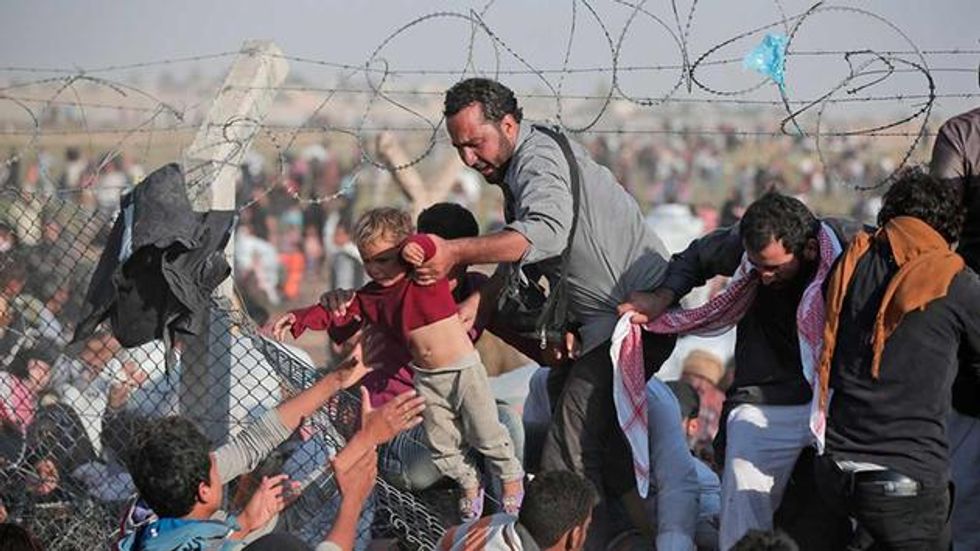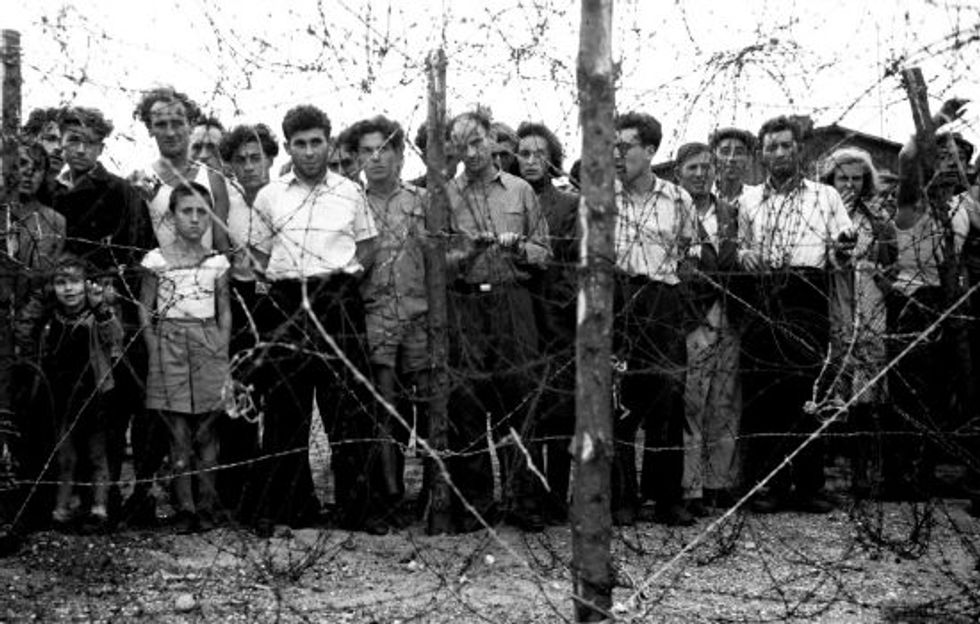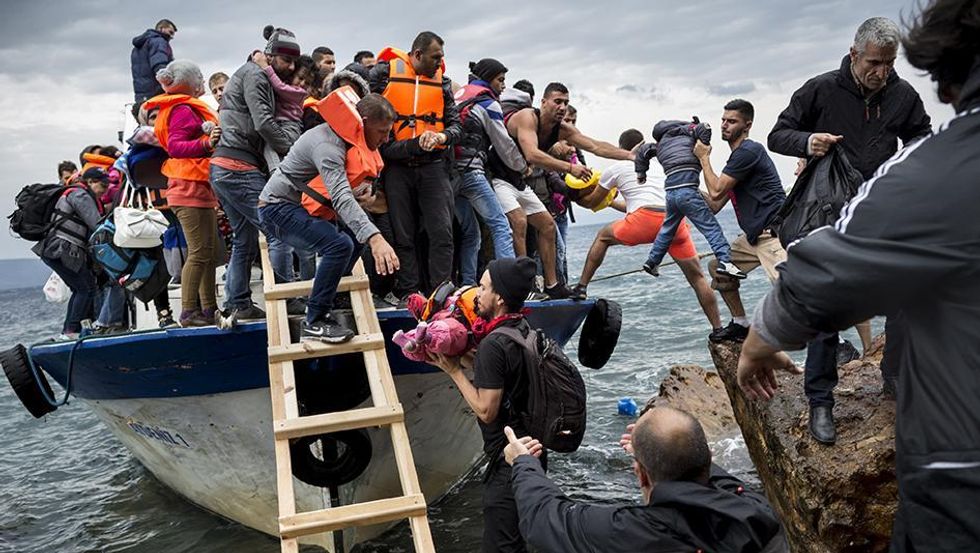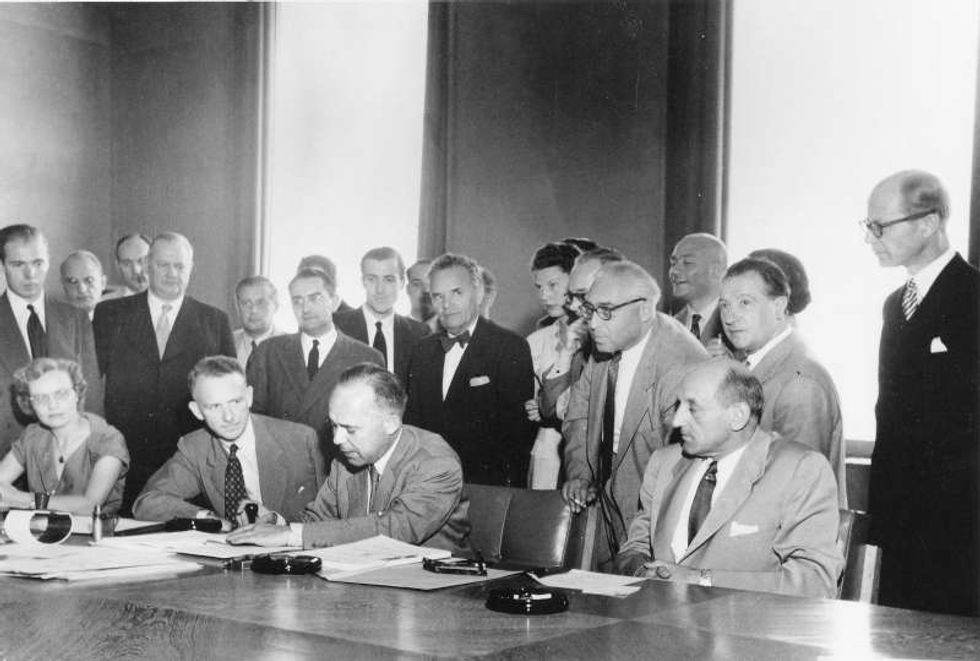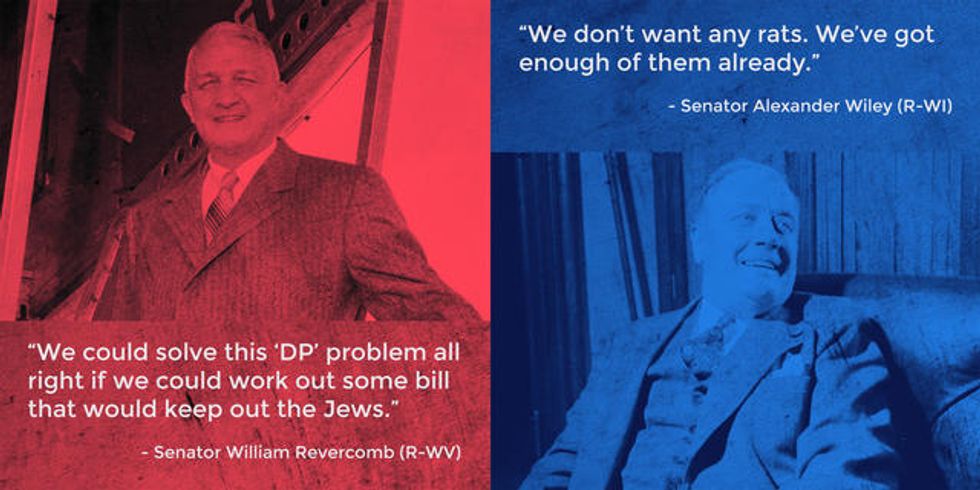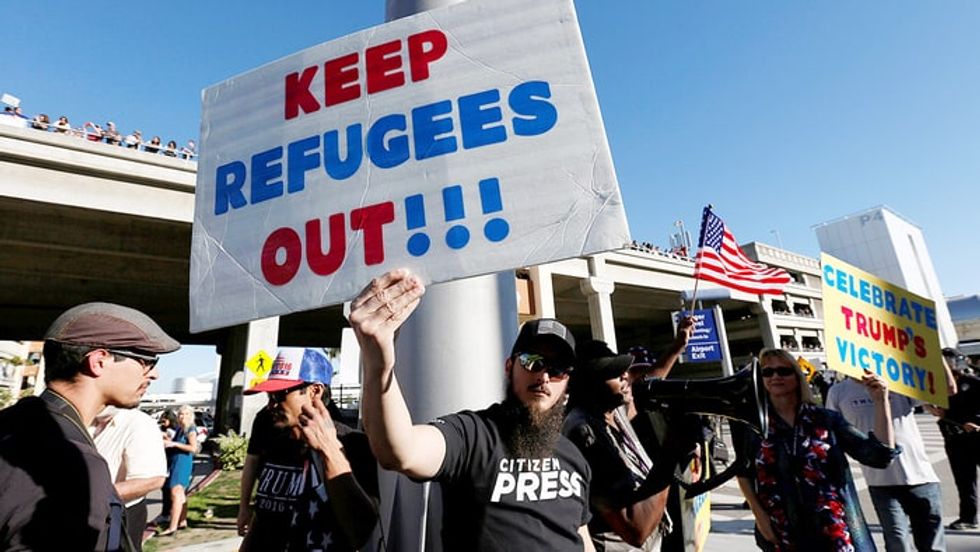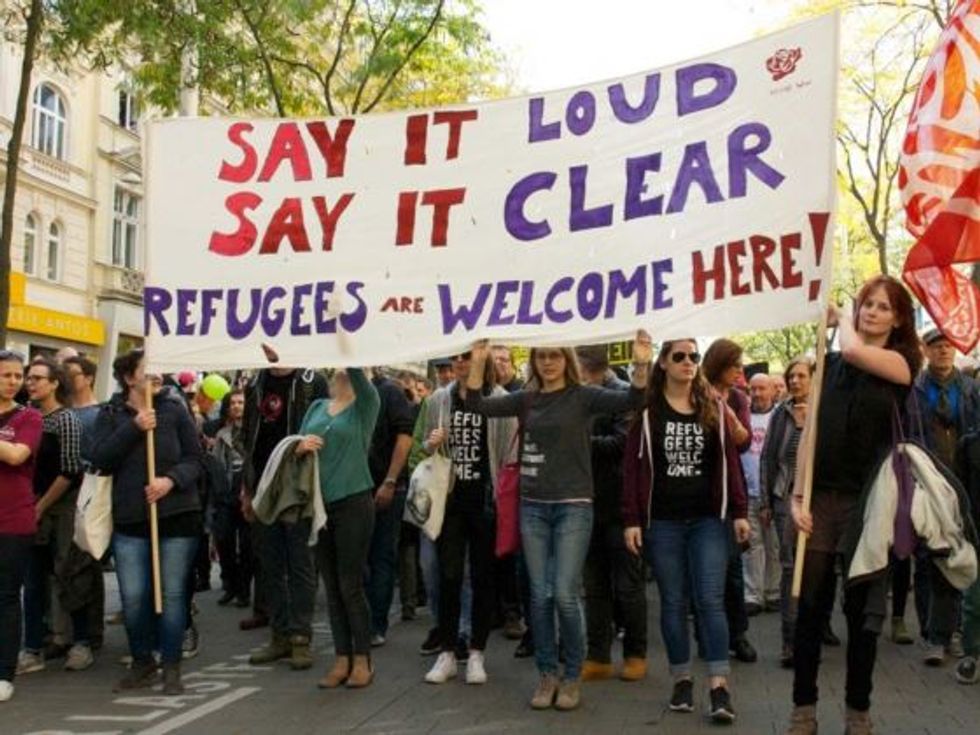Since close to the beginning of time, there have been leaders who have made the lives of people in certain demographics a living nightmare. Because of the living conditions that these leaders have created for these people are so terrible, they flee their homes and become displaced persons or refugees.
There are refugee laws that were inspired by the events that followed the holocaust. You see, the elementary-high school history books here in America make the end of the holocaust seem clean and like everything was wrapped up in a perfect bow. But the end of the holocaust was anything but clean and wrapped in a perfect bow. The holocaust victims were considered displaced. Their homes had been destroyed by the Nazis in order to make room for ghettos, they had nowhere to go. In some cases, neither did the Nazis. As there were already shelters built in the concentration camps, the allied troops used concentration camps to house the victims and their treacherous jailers in what they were calling Displaced Persons Camps.
One of the things that many displaced people have always struggled with is that there is no home for them to go to. When displaced people flee their homes, they will actually pay people to smuggle them...for a price of course. You see, nobody wakes up and says, "I'm going to flee my home today with no money". No, they save up for months or even years. In the days following the holocaust, the cost of being smuggled part of the way to Palestine was ten or fifteen cigarettes per person. Now the cost is hundreds or thousands of dollars.
I know what you're thinking. "Why didn't they just wait to be placed in a new home or new country"? Well, what a wonderful question. Most countries were completely uninterested in taking in new refugees. Again, I know what you're thinking. "Why didn't the UN do anything about this? They're supposed to help do what is in the best interest of earth's people" (or something along those lines, right? The answer is that they did. Six years after the end of World War II, the countries came together and came up with the refugee laws. These laws defined what a refugee was, and how they believed to best handle the refugee crisis. These laws and definitions were rushed, and lack humanity. One of the sad things is that we still use the same laws from 1951 today.
I've noticed some similarities in the past few years between the refugee crisis after the holocaust and after Syria. Many countries after the second world war refused refugees from the concentration camps out of fear of the troubles they would bring with them.
Eventually, they were forced to designate a number of refugees that they would allow in their countries. Some took a small percentage of their immigration numbers and designated that percentage to refugees. Some just gave a very limited number of refugees that they would allow. And even after that, the refugees were vetted, given poor housing, some lived lives similar to indentured servants, and very little assistance with assimilating into the country.
More and more, there are people from everyday citizens, to leaders in office, who have spoken out admonishing people who sympathize with refugees and have urged for more refugees to be admitted to their countries.
I urge everyone to promote change in how we treat refugees and displaced people. Encourage people to accept and love these people. Also, if you wanted, encourage change in policies. We changed laws from 1951 that were degrading and cruel in many other parts of life, why not change these?
*To get an idea of what fleeing your country is like, click this link http://www.bbc.com/news/world-middle-east-32057601 to access BBC's Syrian Journey: Choose your own escape route.
https://www.icrc.org/en/document/protected-persons...
Explore the refugee laws for yourself here https://www.un.org/ruleoflaw/thematic-areas/intern...


